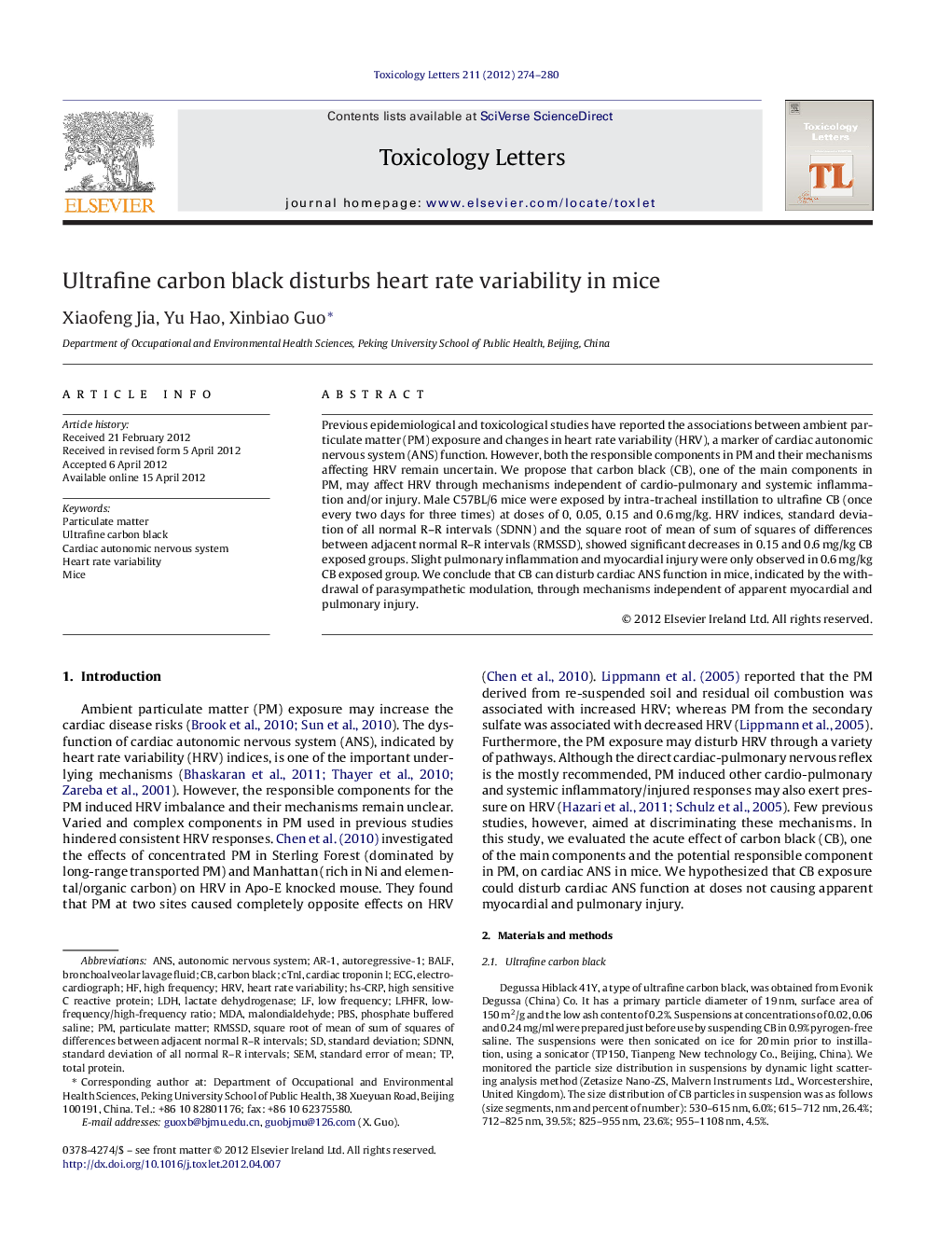| Article ID | Journal | Published Year | Pages | File Type |
|---|---|---|---|---|
| 2599531 | Toxicology Letters | 2012 | 7 Pages |
Previous epidemiological and toxicological studies have reported the associations between ambient particulate matter (PM) exposure and changes in heart rate variability (HRV), a marker of cardiac autonomic nervous system (ANS) function. However, both the responsible components in PM and their mechanisms affecting HRV remain uncertain. We propose that carbon black (CB), one of the main components in PM, may affect HRV through mechanisms independent of cardio-pulmonary and systemic inflammation and/or injury. Male C57BL/6 mice were exposed by intra-tracheal instillation to ultrafine CB (once every two days for three times) at doses of 0, 0.05, 0.15 and 0.6 mg/kg. HRV indices, standard deviation of all normal R–R intervals (SDNN) and the square root of mean of sum of squares of differences between adjacent normal R–R intervals (RMSSD), showed significant decreases in 0.15 and 0.6 mg/kg CB exposed groups. Slight pulmonary inflammation and myocardial injury were only observed in 0.6 mg/kg CB exposed group. We conclude that CB can disturb cardiac ANS function in mice, indicated by the withdrawal of parasympathetic modulation, through mechanisms independent of apparent myocardial and pulmonary injury.
► We evaluate comprehensively HRV and other related responses after CB exposure. ► We confirm CB is the responsible component that mediates imbalanced HRV. ► We confirm CB induced HRV imbalance is independent of other responses.
